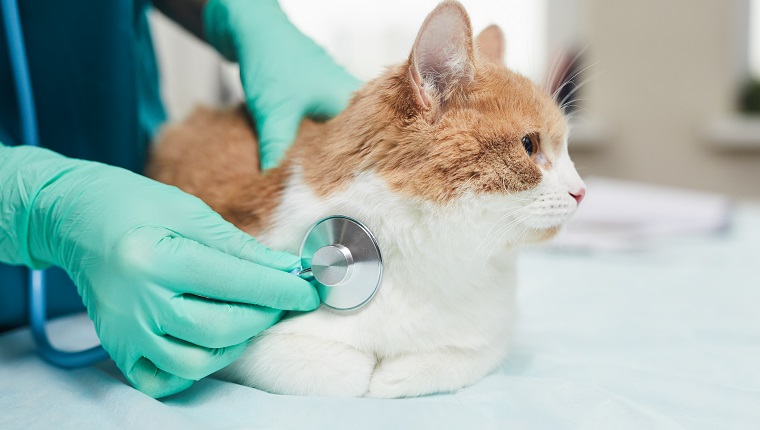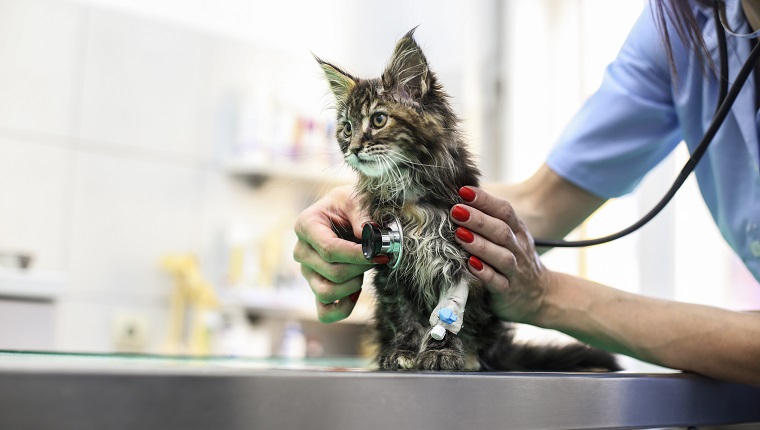Ventricular septal defect in cats, often abbreviated to VSD, is a congenital medical condition that affects a cat’s ventricle chambers in the heart. It happens when a hole is present between the ventricle chambers.
This is one of the most common congenital heart conditions that cats may suffer from; although in many cases, a cat might not show any symptoms.
If you see signs that your kitty might be suffering from any heart issues, then you must consult your veterinarian for a proper diagnosis and advice. Here’s what you should know about the symptoms, causes, and treatments of ventricular septal defect in cats.
Symptoms Of Ventricular Septal Defect In Cats
Cats who suffer from ventricular septal defect often do not display any symptoms, a situation that’s known as being asymptomatic.
Some of the most common symptoms that do appear include:
- Unwillingness to exercise
- Problems breathing
- Gums turning pale
- Heart murmurs
- Fainting
- Increased heart rate
- Coughing
Causes Of Ventricular Septal Defect In Cats

The precise cause of ventricular septal defect in cats is currently unknown; although, researchers suspect that genetic factors may cause the condition.
Additionally, vets sometimes suspect the following factors as contributory causes:
- Ingesting poison
- Environmental issues
- Infections
Veterinary Treatments
If you suspect that your cat is developing ventricular septal defect, your veterinarian will want to ask about their full medical history, as well as any recent symptoms that you may have noticed. The vet will carry out a full range of blood tests, along with a urine test.
In many cases, vets use ultrasound and X-ray imaging techniques to accurately monitor the condition of the heart.
When it comes to treatment, vets may consider heart surgery in the most extreme cases. In some cases, vets can prescribe medicine to help manage any symptoms.
As always, if your vet prescribes your cat any medicine, it is vital that you stick to the precise frequency and dosage instructions and complete the full course of medication.
While your cat recovers at home, your vet might recommend that they switch to a special, low-sodium diet.
Has your cat developed ventricular septal defect? How are you and your vet keeping your kitty healthy? Tell us all about it in the comments below.




